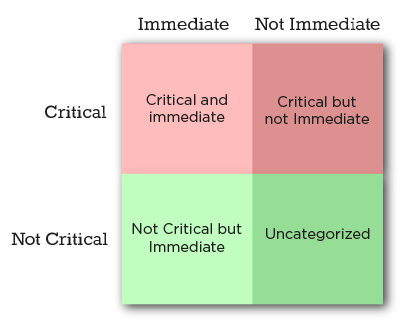You may have months, perhaps years before you need to face the responsibilities of medical school applications. It’s a nice feeling. It’s like you have all the time in the world to relax because revision and preparation can be done later.
Unfortunately, you don’t and it can’t. An application to med school is a massive commitment that needs to be worked on as soon as know it’s what you want to do, if not before! So let’s see how you can more effectively manage your time to avoid the dreaded last-minute crunch to get your application through the door.
The Importance of Time Management
Fans of the Olympics may know that time is an extremely important concept in sport. One millisecond can already change the material of the medal one holds in their hands, one second can already alter the national anthem that is broadcasted throughout the sports hall and one minute is sufficient to change one’s entire life course.
Yet, without being an Olympian, time remains an essential deciding factor of your success. Everyone has 24 hours per day, but why are some people more successful? It may be because of genetic or heritage factors, or it may merely be that they organise their time more effectively than others. There’s a science behind studying that you need to learn!
Don’t put down the idea until you’ve tried it for yourself, you may be surprised by how effective a bit of forward-planning and good working practice will improve your work efficiency and quality! These are all skills that a good doctor needs to possess, so it’s best to get the practice in now to prepare yourself for the future.
So do you want to know how to organise your time so that you can beat the you from yesterday? Let’s not waste time and learn more about the methods of organising it yourself!
Want to make the most of your time? 6med will help you do just that!
Our Complete Bundle provides support for your Personal Statement, UCAT, BMAT and Interview and guides you to a successful application.
With our Complete Bundle, we guarantee that you will get at least one offer to study Medicine, or your money back.


Prioritisation
Prioritisation is usually the first concept that pops into mind when talking about time management. However, there are a lot of methods to achieve this. There’s too much to go over in a short space of time, and some of you may find it easier to experiment with your own methods. So I will only talk about the two most common methods. These should give you a good start to creating a system that works for you and make you work your best!
Priority Matrix – Quadrant Method
Here you will find a pretty typical planning matrix. Square, four sections, nothing too groundbreaking at all. But sometimes the most obvious ideas don’t always come us first, so let’s take a look at why this may be an effective method for you.
Uses: Organising tasks based on importance and urgency.
How to use it:
1. Download a Priority Matrix from Google Pictures and print it out.
Or
1. Download a Priority Matrix app (often costly)
Or
1. Draw a large square inside your daily planner page, then divide the square into four smaller boxes. Now, label the top left corner as Critical and Immediate, the top right as Critical but not Immediate, the bottom left as Not Critical but Immediate, and finally the bottom right as Uncategorised. These aren’t set in stone so you could organise or label them however you see fit.
(It’s not too important how you do Step 1, any of these will be fine!)
2. Separate your tasks into those labels.
3. Considering your available time, plan out when and for how long you will need to do each of these tasks based on the matrix you’ve created.
Advantages: These grids are easy to read and understand, and it doesn’t separate your tasks into a million different categories so it’s super easy to organise your jobs.
Disadvantages: It may be hard to differentiate urgent and important tasks, plus you may have difficulty assigning tasks as “less important” (after all, if a task wasn’t important, it wouldn’t be on your to-do list for preparation).
Lists!
Don’t like quadrants? What about lists?
It may seem like a really basic and unhelpful thing to make, but many people would swear on the effectiveness of lists as an organisational tool!
Uses: Compiling all your tasks to complete in one place, potentially categorising them by different factors and ordering them to suit your needs.
Types of Lists to Use:
– Master List
– Weekly List
– To-Do List
How to use it:
1. Write a master list that details all the tasks that you have to do. A process that is extremely mundane, but important. This can include anything from feeding your dog to revising your UCAT or BMAT.
2. Create a weekly list that delineates the things you have to do that week, bearing in mind any deadlines or test dates.
3. Make a to-do list that lists what you should do today. E.g. Revising for a test for tomorrow
4. Remember to add a tick box or some form of marker to check off when a job is complete. Not only will it help you keep track of your work but it’s incredibly satisfying to see your job list shrink as time passes!
Advantages: You’ll be unlikely to miss or forget anything if you put the effort into making the list at the start. Having everything that you need to do in front of you is comforting for many, as you’ll be able to see a light at the end of the tunnel (e.g. a chance to relax once your jobs are done).
Disadvantages: Having a nicely organised list of everything is great when you’re actually working, but the work needed to make the list in the first place can be overwhelming. What if you forgot to add something? What if you need to change the organisation halfway through? It’s tricky to get past the doubts, but it will all be worth it when you have that definitive list of everything you need to do to get into med school!
Procrastination
I am sure all of us have procrastinated before. It’s perfectly natural because the brain wants to avoid unpleasant emotions for as long as possible. It’s a similar concept to why we might eat chocolate when stressed.
But if it’s normal, how can we limit its devastating consequences?
Let’s look at my favourite method:
Pomodoro

Remember our favourite cooking tomato?
Yes, it’s the famous Pomodoro Method! For those who aren’t familiar, this isn’t an excuse to make pasta sauce, it’s a legitimately great method of reducing your temptation to put off your work.
If you don’t have one yet, you’ll need a Pomodoro timer for this method to work. There are plenty of free apps available (such as Pomotodo), so setting up this method is easy!
Uses: Splitting your work into manageable chunks to avoid burnout.
How to use it:
1. Decide a task to work on. (Choosing which task to do depends on its priority. Refer to the Prioritisation section.)
2. Break down your time into approximately 25-minute intervals. During this time, be focused and don’t check any social media or messages. If you have an urge to procrastinate, write it down and continue working.
3. Take a short break of five minutes when the timer rings.
4. Repeat the process three times, then take a longer break for 10-15 minutes.
Advantages: You should be much less tempted to procrastinate when working under the Pomodoro method because you are essentially giving yourself dedicated procrastination time every half hour! Knowing when your breaks will make it easier to carry on your work without distraction.
If you end up finding yourself completely immersed in your work, the time will go so much quicker and you may even work through your timer!
Disadvantages: On the opposite side of things, if you find yourself completely immersed in your work, the timer may disrupt your flow and reduce your efficiency. The key is to treat the timer as a guide and not a rule. If the timer goes off when you’re in the middle of a massive breakthrough in your revision, don’t feel that you have to stop if you don’t want to! You can reset the timer and take your break next time.
In reality, there isn’t a one-size-fits-all method to reducing procrastination. What’s more important is to recognise that you are procrastinating and why you are doing so.
- Is it due to a lack of motivation? Maybe think of a little reward after you finish that piece of boring homework? Alternatively, punish yourself for procrastinating? For example, tell yourself “I can’t nap unless I finish this.” (Although bearing in mind, positive reinforcement tends to trump negative reinforcement and sticks more).
- Is it because you lack concentration? Try to focus on one task at a time using the Pomodoro technique.
- Is it because of a noisy and messy working environment? Spice up the location! The library, home, Starbucks… Wherever suits you best!
Use the strategies that work for you to combat it. If you succeed, you have to remember to reward yourself! Make a cup of tea, go to the gym, eat some chocolate or just browse your socials for a few minutes!
Closing Words
You could spend as much time thinking about time management as you could doing the actual work you need to do! For some, time management comes naturally, they’ll complete their tasks to a schedule and make the most of their time without even thinking about it.
But if you’ve ever felt stressed or overwhelmed by your workload, if you’ve ever had to crunch at the last minute to get something done or just completely missed a deadline, the issue may have been your management of time. Everyone could benefit from more hours in the day, but the next best thing is to utilise the hours you do have!
Einstein might say, “time is an illusion“. You might once have said, time is a waste when spent on revising. However, I think time should be our friend. Embrace it, treasure it, and use it effectively!
If you’re looking for more study techniques to help you ace your application, check out our guides to Interleaving and The Spacing Effect!
Not sure where to start with your Medical School application?
Our Complete Bundle provides support for your Personal Statement, UCAT, BMAT and Interview and guides you to a successful application.
With our Complete Bundle, we guarantee that you will get at least one offer to study Medicine, or your money back.


